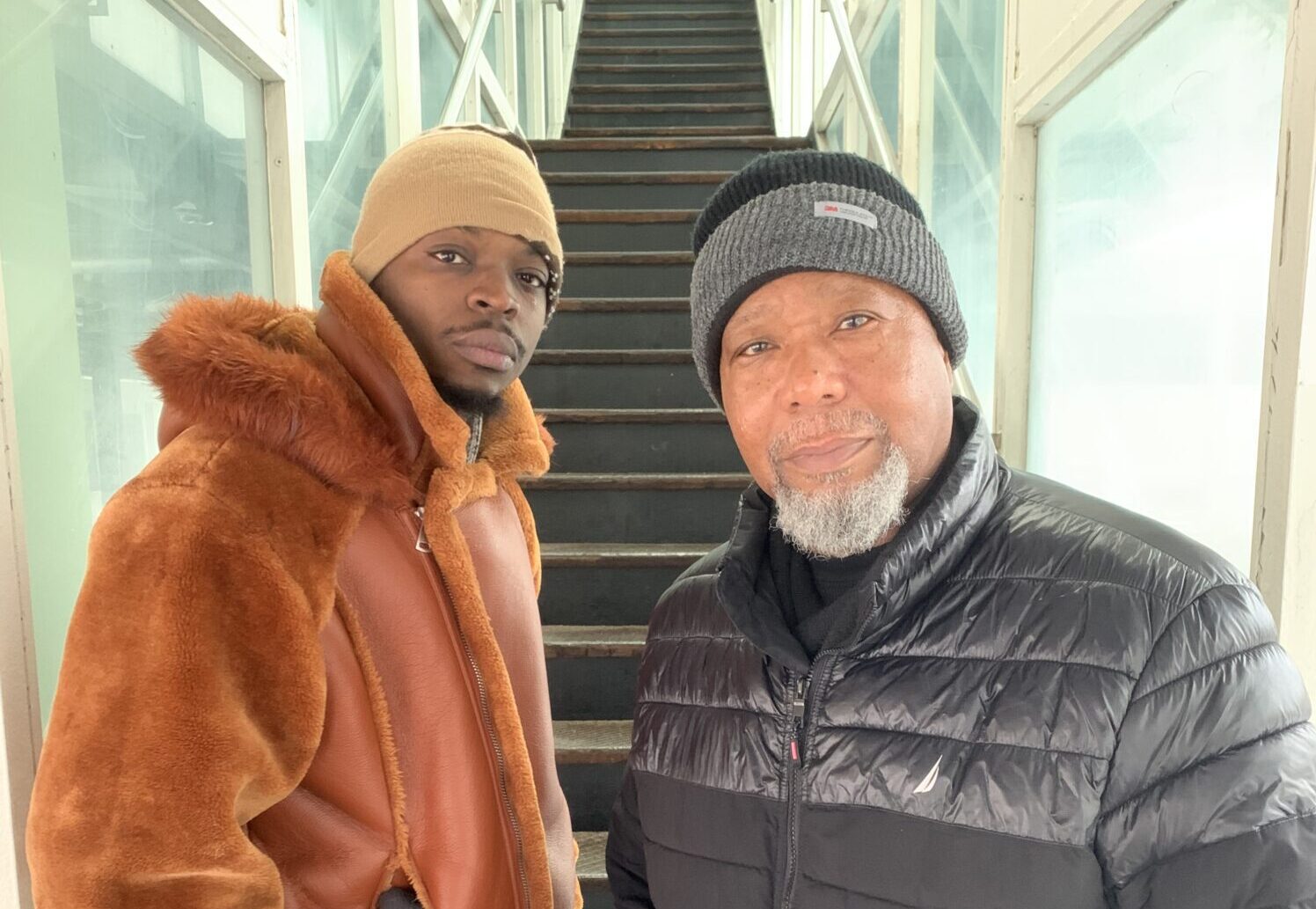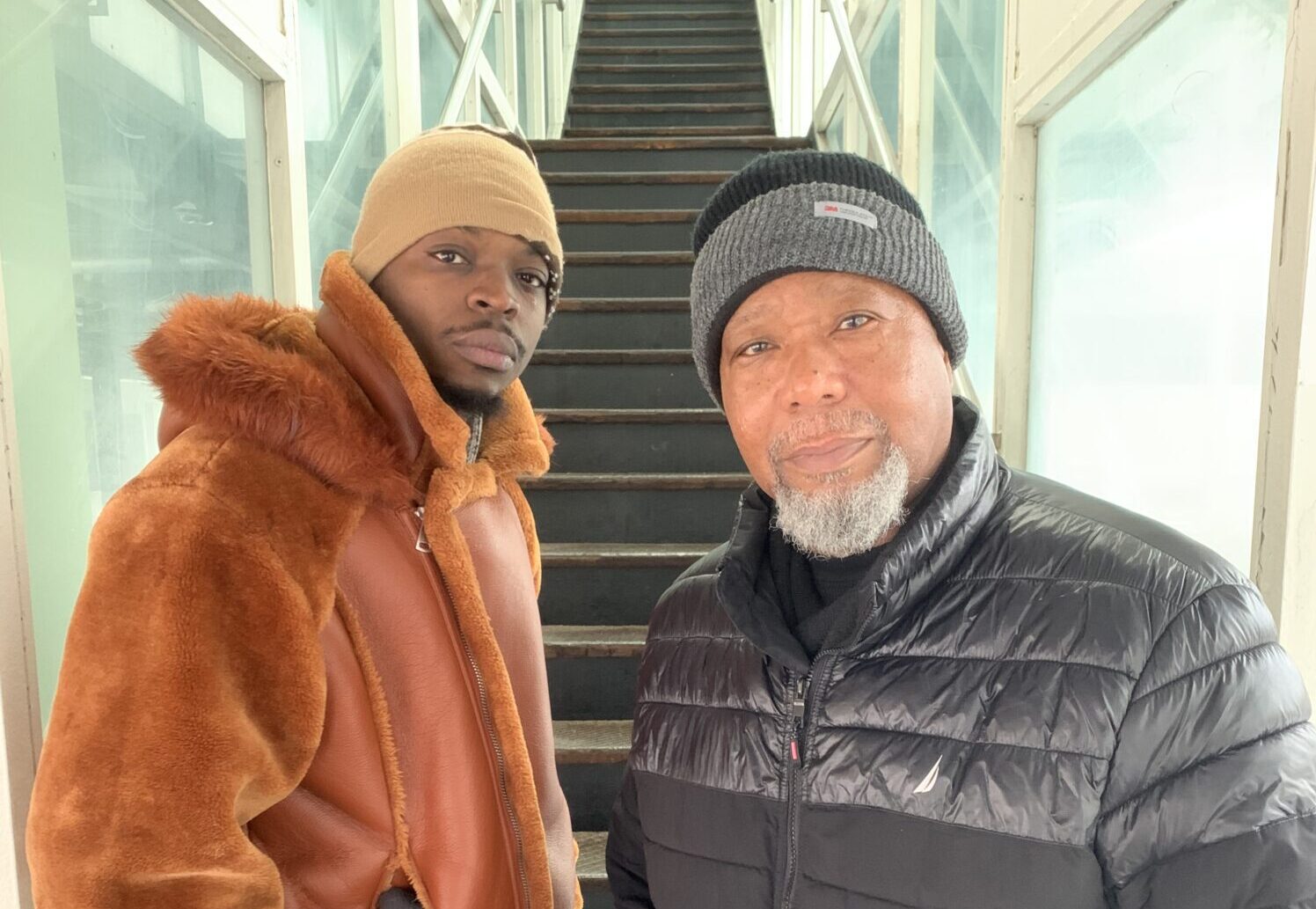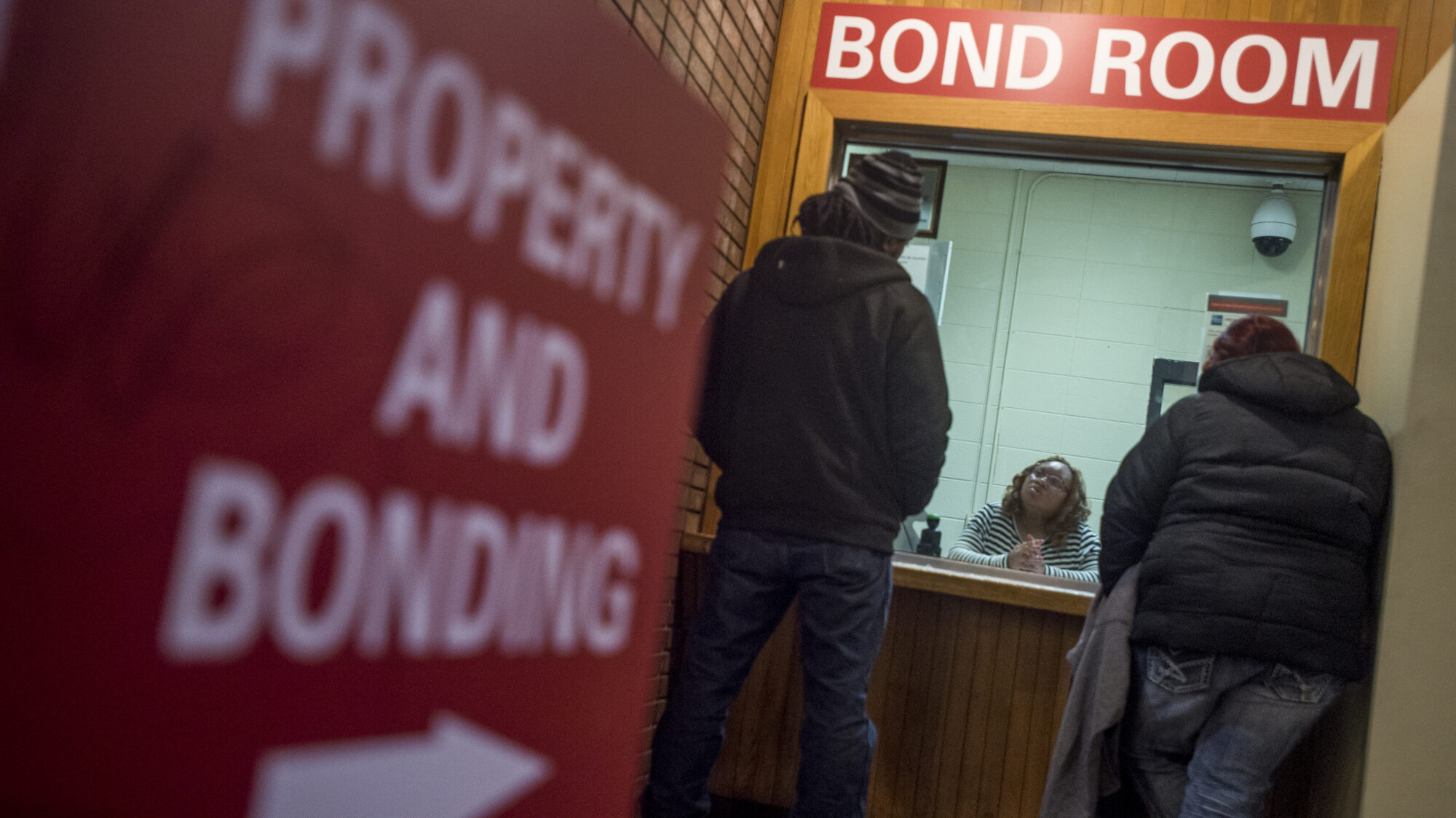As Kim Foxx Exits, Chicago Is Choosing the Next “Gatekeeper” of Its Bail Reform
Many Illinois prosecutors are undermining the law that ended cash bail, but the Cook County state’s attorney's office under Foxx has been a strong ally—for now.
Pascal Sabino | March 1, 2024
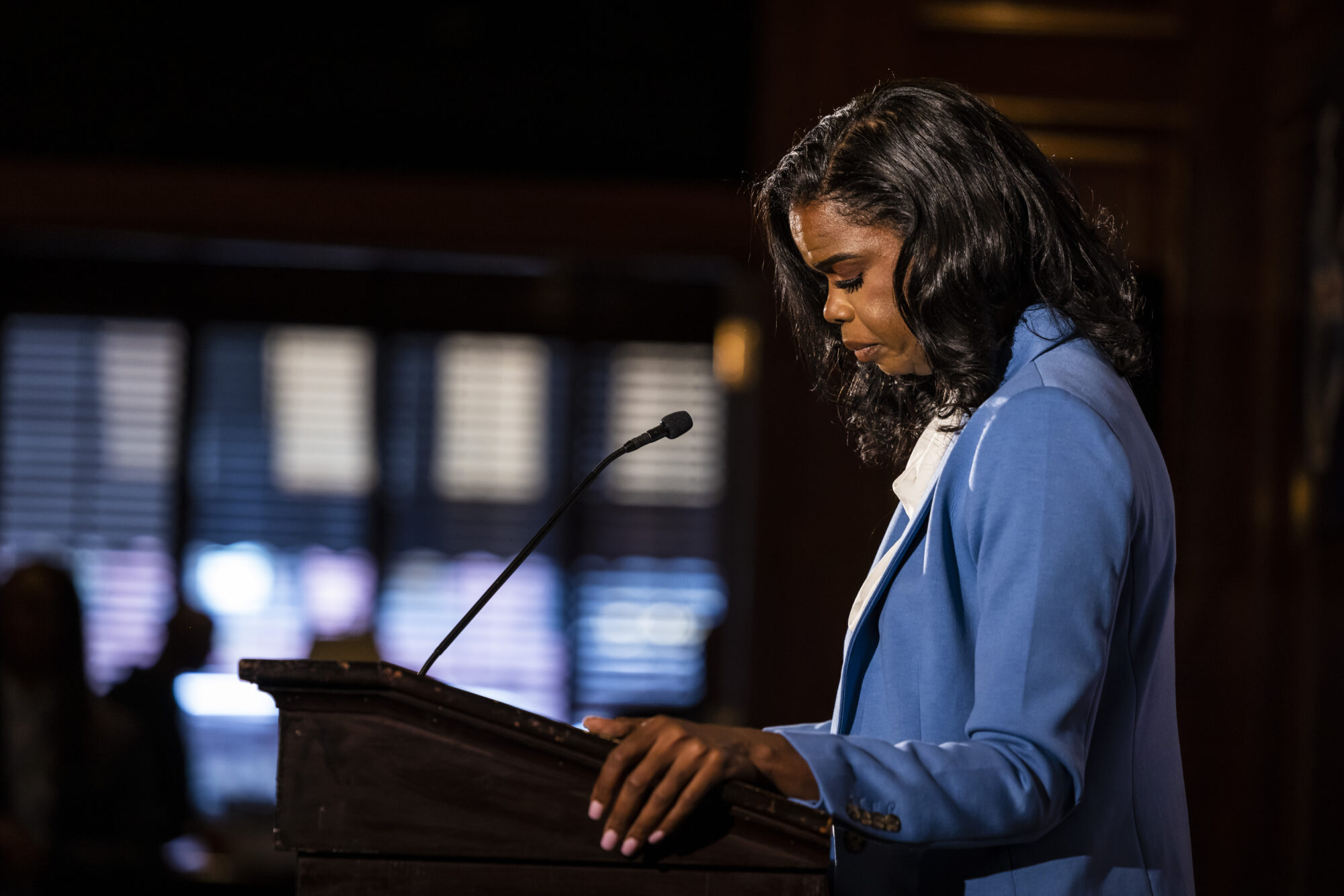

Illinois last fall became the first state to end the use of cash bail, banning the practice of making defendants pay money in exchange for staying out of jail before a trial. The landmark reform came out of heavy organizing in Chicago and wide support from city politicians. Even the chief prosecutor of Cook County, State’s Attorney Kim Foxx, championed the law, breaking with many of her downstate peers who sued to block it and are now railing against it.
Foxx’s presence in Cook County has reassured advocates for bail reform. While prosecutors often undermine the implementation of criminal justice reforms, she has staunchly defended the law against its critics. First elected in 2016 on progressive promises, Foxx reduced her office’s use of cash bail well before the Pretrial Fairness Act took effect last year, even as local defense attorneys pressed her to make even bolder changes.
But Foxx chose to retire this year rather than seek reelection, leaving the nation’s second biggest prosecutor’s office open for the taking. Voters will now decide who oversees the abolition of cash bail in Chicago for years to come.
In this staunchly blue county, the Democratic primary on March 19 will likely decide Foxx’s successor, and reform advocates are wary of what this means for the future of pretrial detention.
“Cook County previously elected a state’s attorney that championed these reforms,” Matt McLoughlin, an activist and cofounder of the Chicago Community Bond Fund, told Bolts. “There are real concerns about who takes control of the largest prosecutor’s office in the state and what role does that individual play in policymaking in the capital.”
The two Democratic candidates vying to replace Foxx—Clayton Harris III, a former assistant prosecutor, and Eileen O’Neill Burke, a former judge who also worked as a prosecutor—have both expressed broad support for the Pretrial Fairness Act. They’ve both praised the law, and neither is trying to win the election by fearmongering over its effects, a marked difference from other prosecutors’ backlash against bail reform elsewhere in the country, and elsewhere in Illinois.
But O’Neill Burke has also blamed Foxx for being too lenient in some cases, signaling she’d turn the page on the incumbent’s reform priorities. Harris has comparatively aligned himself with the outgoing state’s attorney, whose tenure has seen a considerable decline in the local jail population. Local progressive leaders and the county Democratic Party recently coalesced around Harris as the candidate more likely to continue criminal legal reforms in Chicago.
In responding to Bolts’ questions on pretrial detention, Harris outlined a different philosophy than O’Neill Burke when it comes to how systematically he’d try to keep people behind bars. O’Neill Burke’s campaign declined to respond, but her public statements paint a more punitive picture of how she’d wield the considerable power that the Pretrial Fairness Act gives prosecutors.
Under the new law, courts can still order someone detained pretrial—but only if prosecutors ask for it. This sets up a new decision point for them: It puts the burden on prosecutors to file detention requests with judges, and then prove at a hearing that the defendant poses either a danger to the community or a flight risk.
“In effect, the state’s attorney has now become the gatekeeper,” O’Neill Burke told WGN Radio in January. “So it has become exponentially more important that the state’s attorney knows what they’re doing and that they put structure, training, criteria in place.”
Outside of Chicago, some state’s attorneys have taken a hard line in response to the new law, vowing to petition judges to order pretrial detention in every case that’s legally eligible for it, regardless of the circumstances. Patrick Kenneally, the state’s attorney of McHenry County, northwest of Chicago, says his office will ask for anyone charged with an eligible felony to be jailed.
“We are filing all of those cases because we believe that based on the nature of the charge, that person is self-evidently a danger to the public,” Kenneally, a Republican running for reelection unopposed this year, told Bolts.
For reform advocates who championed the Pretrial Fairness Act, this approach goes against the spirit of the law. “Just because someone is facing an eligible charge, it doesn’t mean prosecutors actually have to have that person detained,” said McLoughlin. “They’re supposed to be using some discretion to determine if that person is a danger to the public.”
McLoughlin added, “At the end of the day, that isn’t about keeping the community safe so much as it is about projecting a tough image of law-and-order.”
For proponents of the Pretrial Reform Act like McLoughlin, the law wasn’t just about ending cash bail, but also reducing the number of people who are locked up in jail. Staying free while awaiting trial allows defendants to keep their jobs, continue supporting their families, and freely meet with their attorney to prepare their legal defense. Pretrial freedom also removes jail as a point of leverage prosecutors often use to pressure someone into taking a plea deal.
“Jailing people awaiting trial increases the rate at which people will be rearrested in the future,” said Sharlyn Grace, senior policy advisor for the Cook County Public Defender’s Office. “It decreases their employment prospects and their earnings potential, and generally contributes to the opposite of what everyone wants for the community.”
O’Neill Burke has partially mirrored Kenneally’s blanket approach for some categories of cases. She has pledged to seek pretrial detention for “each and every” case involving a violent crime, as well as anyone charged with possession of a gun that’s covered by the state’s Assault Weapons Ban. (Gun possession is among the most common felony charges in Cook County.)
Harris has promised an aggressive approach to detaining those accused of violent crimes, but he told Bolts via email that he doesn’t share that blanket approach. The office under his leadership would decide on a “case-by-case basis” whether to seek a detention hearing over violent offenses, he said in a statement emailed by his campaign.
For gun possession cases, Harris says his office would petition for detention if the gun was used to commit a crime, or if the defendant has a “record of violence.” Elsewhere, echoing a point made by some Chicago public defenders, Harris has expressed concern about the fact that gun possession charges disproportionately fall on Black men, saying they are likelier to carry guns for self-protection.
For Madeleine Behr, policy director of Chicago Alliance Against Sexual Exploitation, prosecutors should consider their options rather than automatically seek pretrial detention, even in cases of domestic abuse and sexual violence. “For some people experiencing gender-based violence, they often call law enforcement to get the violence to stop in the moment,” Behr said. “But that doesn’t mean they are interested in pursuing charges or a commitment to moving forward with a case for weeks or months or years.” Prosecutors, she said, should “consult directly with the victim for what they would like to see.”
Whether a prosecutor seeks pretrial detention is only the tip of the iceberg—while it may be the most visible part of their discretion, by that point they’ve already made a suite of other decisions that steer a defendant toward either jail or release.
Prosecutors have always leveraged their power to decide what charges to use in a case. For instance, they may stack charges or start by filing severe ones to pressure a defendant into pleading guilty on lower charges. Under the Pretrial Fairness Act, these charging decisions are also a decisive factor in whether prosecutors are allowed to request pretrial detention at all.
The new law states that courts cannot jail defendants who face some lower-level charges. The provision is meant to limit prosecutors and judges from using the elimination of money bail to increase pretrial detention.
But reform advocates are nervous that prosecutors who want more leeway to detain may respond by filing steeper charges for which pretrial detention is still eligible.
“Differences in charging decisions may be tied to the prosecutor’s desire to have the defendant detained pretrial,” said Ben Ruddell, director of criminal justice policy at the ACLU of Illinois. “If the prosecutor really wants to detain someone pretrial, then they might opt to charge someone” with a stiffer offense than they would have used under the previous system.
James Kilgore, director of advocacy and outreach for FirstFollowers Reentry Program, shares Ruddell’s worry. “One of the things they may do is stack charges and create felonies out of misdemeanors,” he told Bolts. “Whereas before people were going to be kept in jail anyway because they didn’t have bond money, now they have to have a serious charge in order to be kept in jail or on electronic monitoring.”
Here too, O’Neill Burke’s statements signal that she would take a more aggressive stance than the incumbent and her leading competitor.
For instance, Foxx has set a policy to prosecute retail theft as a misdemeanor, rather than a felony, whenever the value of stolen goods is below $1,000. Harris has said he would continue this policy but O’Neill Burke has denounced it. “Just not prosecuting crime doesn’t deter it, it promotes it,” she told WGN. She says she would charge all retail theft cases where the value exceeds $300 as a felony, as state statutes allow.
Retail theft charges are not eligible for pretrial detention even at the felony level, so that policy alone would not change the jail population. Still, it provides a window into O’Neill Burke’s interest in dialing up the range of charges her office uses. “I do not believe that they promote a thriving, safe city,” she told the Chicago Sun Times about the Foxx administration’s policies.
Harris, meanwhile, has said he’d give Foxx an “A” for what she’s done during her tenure, saying she has mostly erred in not communicating the benefits of her reforms.
The next state’s attorney will also steer office policy on electronic monitoring. When they’re not seeking pretrial detention, prosecutors can still ask for release to come with certain conditions, like ankle monitors.
Illinois’ ankle monitor system has been rife with errors; 80 percent of alerts received by local law enforcement as of 2021 were mistaken, a University of Chicago analysis found. Still, a violation may allow prosecutors to ask that the court detain someone. “Given the inaccuracy of these devices and their propensity to create false alarms, this can also be an opportunity to send people back to jail for violating their release conditions,” Kilgore said.
So far, the new system hasn’t resulted in more Chicagoans placed under house arrest as they await trial.
The winner of the Democratic primary between Harris and O’Neill Burke will move on to the general election to face Republican Bob Fioretti, a former alderperson unopposed in his party’s primary. Fioretti has attacked bail reform as dangerous and says Foxx’s office is “erring on the side of letting criminals walk free.”
Fioretti faces long odds in November because Cook County is overwhelmingly Democratic. But sitting prosecutors elsewhere in the state are using similar rhetoric to say the new law is forcing them to release people who should be locked up. They’ve often spread incorrect information to make their case, like Kankakee County State’s Attorney Jim Rowe’s claims that courts can no longer jail fentanyl dealers and carjackers, or McLean County State’s Attorney Erika Reynolds’ statement that misdemeanor domestic violence cases are now ineligible for detention.
In fact, defendants can still be detained over drug sales, carjacking, and misdemeanor domestic violence, depending on the circumstances.
Opponents of the law have also argued against any bright line that shields some categories of charges from pretrial detention. In 2022, the Illinois State’s Attorney Association, a group that represents prosecutors in the state and typically advocates for more punitive policies, pushed for a bill that is no longer active to allow the court to jail people on lesser charges.
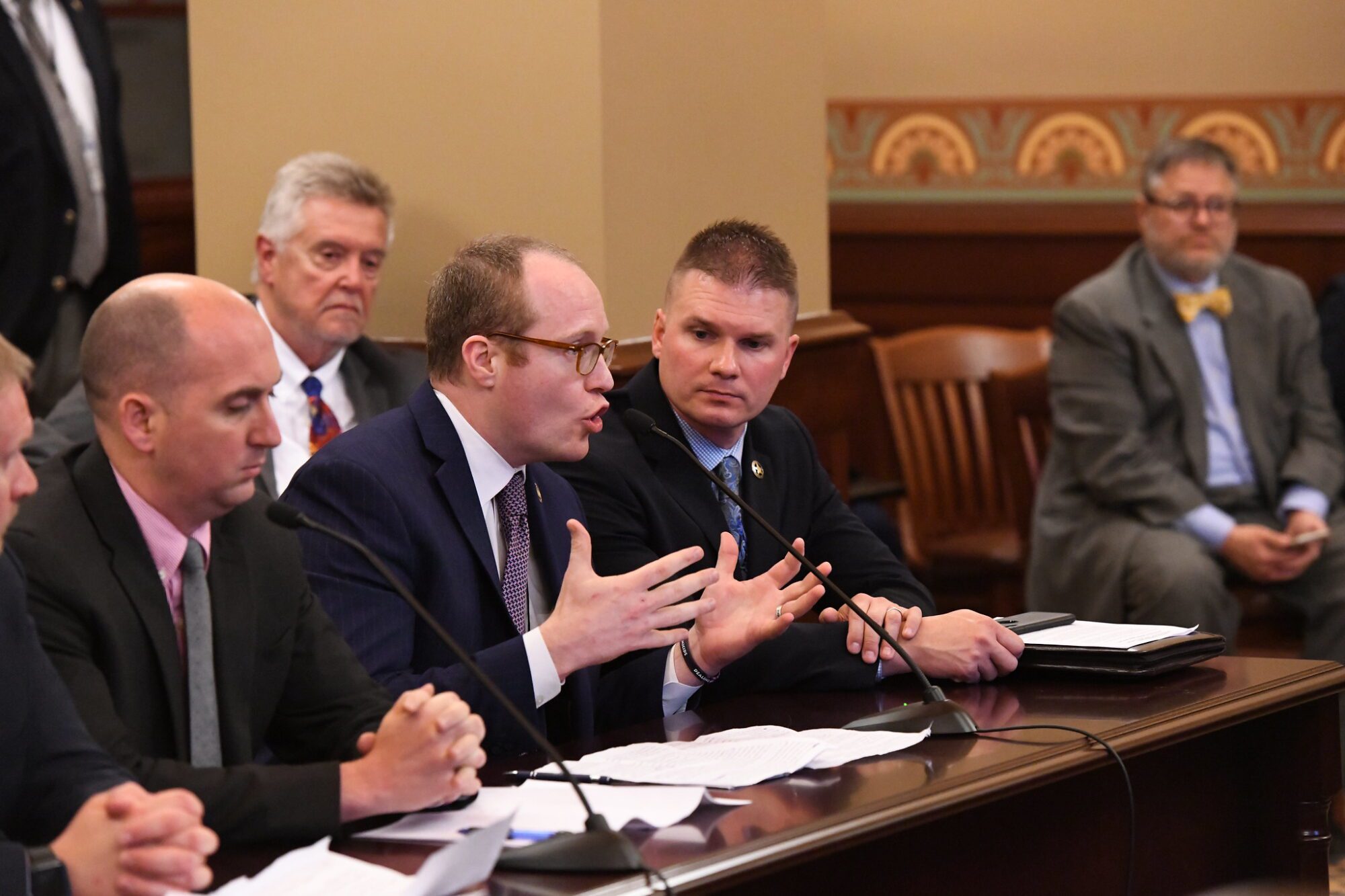
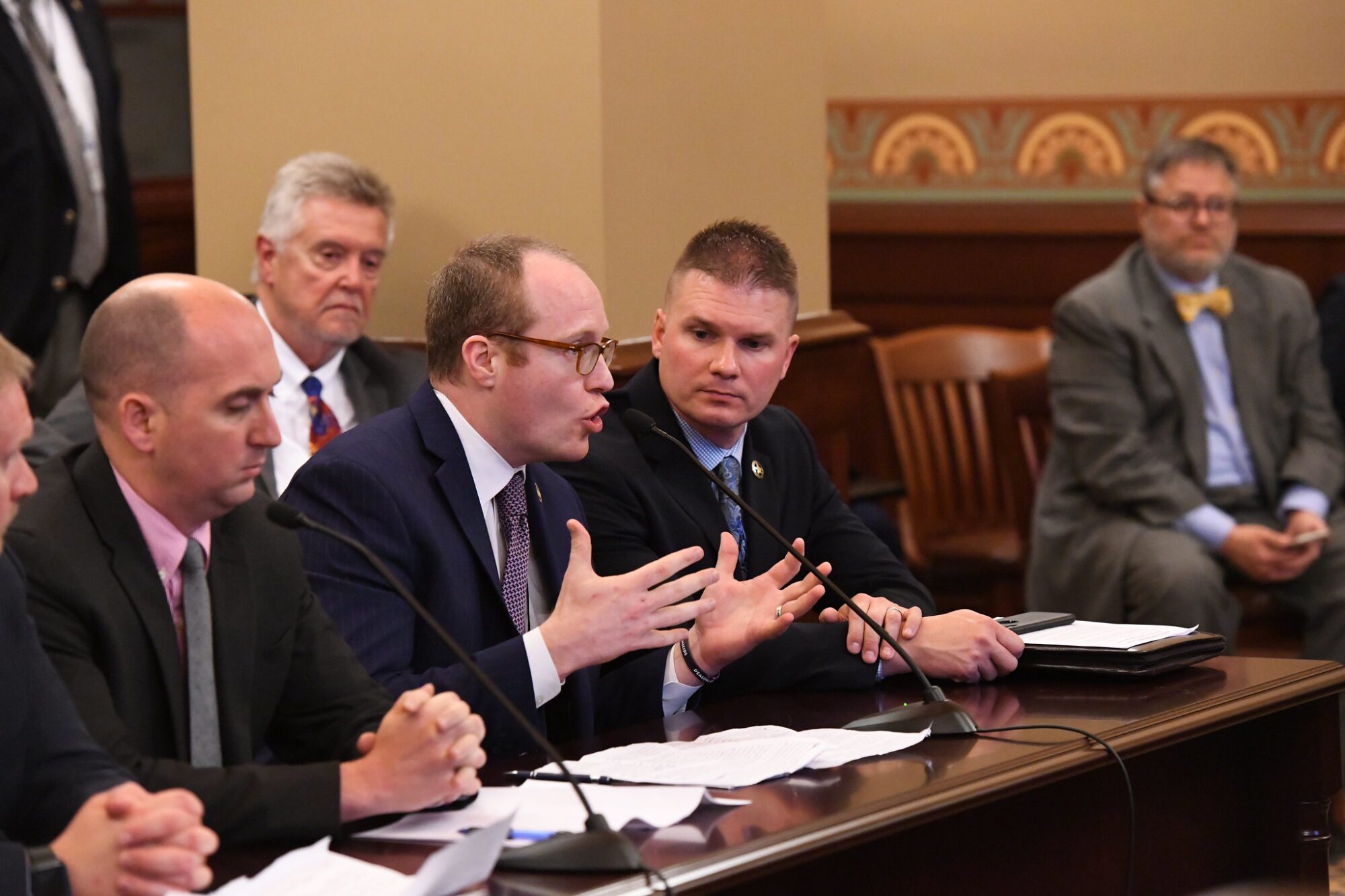
Kenneally, the McHenry prosecutor, wants to make more charges eligible for pretrial detention.
“My fundamental critique is that, very often times, when people are being charged with these non-detainable offenses, they are in a position to commit more crimes,” Kenneally said. “If their criminal history suggests they will continue to commit crimes, it has taken the discretion of prosecutors and judges to hold those people.”
“We can’t hold somebody on concealing a corpse or concealing a murder, but we can hold them for pushing their boyfriend or throwing a piece of pizza at their boyfriend, and it’s fundamentally absurd,” he told Bolts. (The charge of concealing a homicide is eligible for pretrial detention if prosecutors demonstrate a flight risk.)
This continued conflict over the law’s future would be resolved in Springfield, but the identity of the next Cook County state’s attorney may still shape those developments.
In championing bail reform, Foxx provided a counterweight to the positions of the Illinois State’s Attorneys Association, a role similar to what reform-minded prosecutors have done elsewhere in the country. Cook County alone makes up 40 percent of the Illinois population, and its lawmakers enjoy a lot of clout in the legislature.
This made Foxx a punching bag for more punitive Chicago officials and other prosecutors, but reform advocates say her pushback against misinformation was essential for the law’s survival.
“It was hugely important that State’s Attorney Foxx was a supporter of the Pretrial Fairness Act, an advocate and a defender of the law, and a thought partner in its development,” said Grace, of the public defender’s office. “It absolutely matters that we have a state’s attorney who is engaged in good faith efforts to protect this historic transformation of our pretrial system.”
Correction (March 4): The article has been corrected to reflect that the bill to enable pretrial detention for low-level offenses is no longer active.
Stay up-to-date
Support us
Bolts is a non-profit newsroom that relies on donations, and it takes resources to produce this work. If you appreciate our value, become a monthly donor or make a contribution.



